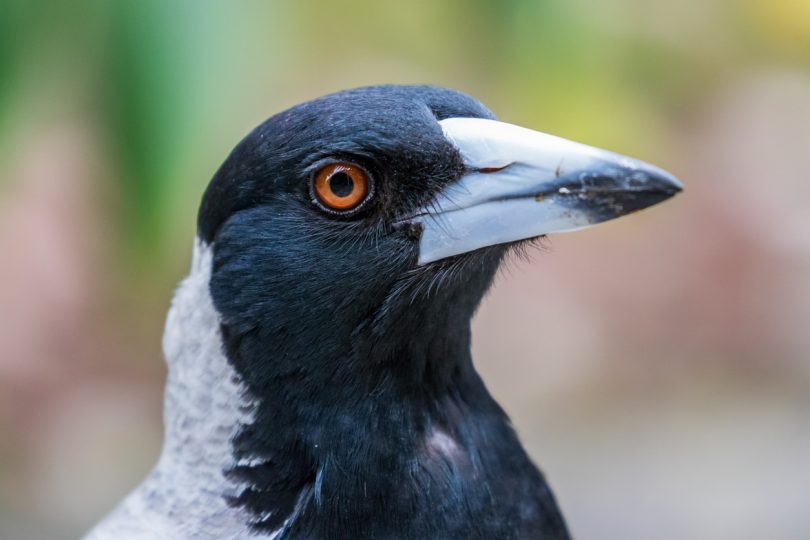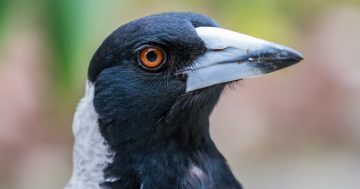
Territorial magpies will soon descend on pedestrians and cyclists, as mating season begins.
Public service announcement — magpie swooping season has started!
With spring just around the corner, it is that time of the year again where Canberrans are urged to be aware of swooping magpies, causing anyone who has ever been swooped by the black-and-white bird to be on high alert.
As the weather becomes warmer, magpies are beginning to build their nests and raise their young in areas around Canberra. Usually, male magpies swoop only during mating season in spring where they basically become overprotective dads. The mating season can vary from state to state but generally runs between August to October.
So what should we do to avoid being swooped?
The answers come from our friends at the ACT Parks and Conservation Service who have put together this great ‘swooping season’ video which is jam-packed with good advice and tips.
Director of ACT Parks and Conservation Service Daniel Iglesias said a majority of magpies will not be prone to swooping, however, if a magpie feels threatened by an intruder, swooping is a defensive method for them to protect their young.
“If a magpie feels threatened, its instinct will be to swoop the intruder. When people harass magpies, it encourages increasingly aggressive behaviour,” Mr Iglesias said.
“Magpies are quite intelligent and will remember colours and noises which they associate with danger.”
Mr Iglesias said while they may be pests, magpies are a valuable part of our native wildlife and by following some simple precautions we can live in harmony with them:
- walk quickly through magpie territory, but don’t run
- take alternate routes if possible
- wear hats, helmets, glasses or take an umbrella
- keep domestic animals on a leash while in magpie territory
- maintain eye contact with the magpie
- walk bikes through magpie territory.
If you feel inclined, you can also help protect other unsuspecting walkers, runners and cyclists by dobbing in a magpie via the magpie alert website designed to keep track of aggressive magpies. You can share your attack stories online and have the location of your attack marked on the ACT map – found here.

ACT magpie alert website for keeping track of aggressive magpies. Image: Magpie Alert website.
This year, 40 magpie attacks have been recorded in Ngunnawal, Casey, Gungahlin, Palmerston, Fraser, Macgregor, McKellar, Mitchell, O’Connor, Lyneham, Acton, Braddon, Kingston, Curtin, Lyons, Phillip, O’Malley, Tuggeranong, Monash, Banks and Coombs.
If there is a territorial magpie in your neighbourhood, contact Access Canberra on 13 22 81 and rangers can determine whether warning signs need to be installed.
Have you been swooped by a magpie recently? Do you have any tips on ‘hot spots’ to avoid or ways to protect yourself? Let us know your thoughts and experiences in the comments below.













